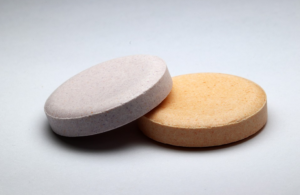Acid reflux refers to a condition that leads to a burning sensation at the bottom of your chest. Those affected experience it when acid from the stomach goes back up to the food pipe. You are diagnosed with Gastroesophageal reflux disease (GERD) when the reflux occurs more than thrice a week. Although the figures vary, diseases from acid reflux are common gut complaints in hospitals.
It happens when the valve at the end of your esophagus does not close after swallowing food. As a result, acid backwash flows back upward through the esophagus to your throat, giving a sour taste. Acid reflux happens almost to everyone at one point in life. However, when you suffer from reflux constantly, including silent reflux, which has no symptom in the chest, you need to check out different therapy options to avoid prolonged symptoms.
The common risk factors leading to acid reflux include:
- Eating large portions
- Being obese or overweight
- Eating heavy meals and lying on your back
- Snacking at bedtime
- Eating foods like citrus, chocolate, tomatoes, garlic, and spicy foods
The Symptoms of Acid Reflux
 Acid reflux causes uncomfortable burning in your chest that radiates up towards the neck. The feeling is usually called heartburn. Also, you develop a bitter or sour taste in your mouth. It also makes you regurgitate the liquid or food from the stomach to your mouth. In other cases, GERD causes difficulty when swallowing. At times, it leads to breathing problems that include asthma and chronic cough.
Acid reflux causes uncomfortable burning in your chest that radiates up towards the neck. The feeling is usually called heartburn. Also, you develop a bitter or sour taste in your mouth. It also makes you regurgitate the liquid or food from the stomach to your mouth. In other cases, GERD causes difficulty when swallowing. At times, it leads to breathing problems that include asthma and chronic cough.
Treatment of Acid Reflux
Your doctor will recommend you try over-the-counter medications and lifestyle modifications. Lifestyle and diet changes include:
- Avoiding beverage and food triggers.
- Eating smaller servings.
- Chewing food thoroughly
- Eating slowly.
- Elevating your head.
- Avoiding smoking.
- Maintaining a healthy weight.
- Wearing loose clothes.
Over The Counter Medications
Some of the over-the-counter medications for acid reflux include:

- Antacids: The drugs help to neutralize the acid in your stomach and esophagus, eliminating heartburn. To many, non-prescriptive antacids give partial or temporary relief.
- H2 blockers: For chronic heartburn and reflux, the doctor can recommend medication that reduces acids in your stomach. They include H2 blockers that block the secretion of acid in your stomach.
- Prokinetics: In rare instances, such drugs help the stomach empty faster to ensure you don’t have much acid left. However, they have side effects so are taken only for a short period.
Typically, you control GERD through medication. However, when it does not help or avoid long-term use of drugs, the doctor might recommend surgery option that includes wrapping the top of the stomach to tighten muscle, preventing reflux, and wrapping magnetic beads in the junction between esophagus and stomach.




